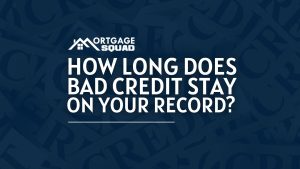Refinancing your mortgage can be a strategic move to improve your financial situation, especially if you live in the Greater Toronto Area (GTA). Whether you’re looking to lower your interest rate, reduce monthly payments, or tap into your home equity, understanding the ins and outs of mortgage refinancing is crucial. This guide will help you navigate the process and make informed decisions.
Why Refinance Your Mortgage?
The 2023 CMHC Mortgage Consumer Survey by the Canada Mortgage and Housing Corporation reveals that 19% of homeowners refinanced their mortgages. Of these, 24% did so to fund home renovations and improvements, while another 24% aimed to consolidate debt. Additionally, 8% of homeowners refinanced to finance the purchase of an investment rental property.
Refinancing your mortgage involves replacing your existing loan with a new one, ideally under better terms. Here are some common reasons why homeowners in the GTA consider refinancing:
- Lower Interest Rates: One of the primary motivations for refinancing is to secure a lower interest rate. If market rates have dropped since you took out your original mortgage, refinancing can reduce your monthly payments and the total interest paid over the life of the loan.
- Access Home Equity: As property values in the GTA have soared, many homeowners have built significant home equity. Mortgage refinance allows you to tap into this equity, providing funds for home improvements, debt consolidation, education expenses, or other major costs.
- Change Loan Terms: Refinancing can also help you adjust the terms of your loan. For instance, you might extend the amortization period to lower your monthly payments or switch from a variable-rate to a fixed-rate mortgage for more predictable payments.
When to Consider Refinancing
Timing is crucial when it comes to refinancing. Here are some scenarios when refinancing might be a good idea:
- Falling Interest Rates: If interest rates have dropped significantly since you secured your original mortgage, refinancing can help you lock in a lower rate.
- Improved Credit Score: If your credit score has improved, you might qualify for better loan terms than you did initially.
- Increased Home Value: If your home’s value has increased, you may be able to refinance to access more equity.
- Financial Goals: If you have specific financial goals, such as consolidating high-interest debt or funding a large expense, refinancing can provide the necessary funds.
How to Refinance Your Mortgage
Refinancing your mortgage involves several steps. Here’s a detailed look at the process:
- Evaluate Your Financial Goals: Before you start the mortgage refinancing process, it’s essential to understand your financial objectives. Are you looking to save money on interest, access cash, or consolidate debt? Knowing your goals will help you choose the right refinancing option.
- Review Your Current Mortgage: Assess your existing mortgage terms, interest rate, remaining balance, and any prepayment penalties or fees associated with refinancing. Conduct a cost-benefit analysis to determine if refinancing makes sense for you.
- Shop Around for the Best Rates: Don’t settle for the first offer you receive. Shop around and compare rates from different lenders. You can use online tools and resources provided by the Canada Mortgage and Housing Corporation (CMHC) to compare financing scenarios and evaluate your options.
- Gather Necessary Documentation: Just like when you applied for your original mortgage, you must provide documentation such as proof of income, employment verification, and bank statements. Having these documents ready will streamline the refinancing process.
- Apply for Refinancing: Once you’ve chosen a lender and gathered your documents, you can apply for refinancing. Be prepared to undergo a mortgage stress test and have your credit checked. The lender will also appraise your home to determine its current value.
- Close the Loan: After your application is approved, you’ll go through the closing process. This involves signing the new loan documents and paying any closing costs, such as appraisal and legal fees. Once the closing is complete, your new mortgage will replace the old one.
Costs Associated with Refinancing
Refinancing isn’t free. Here are some costs to consider:
- Appraisal Fees: Your lender will require an appraisal to determine your home’s current value.
- Legal Fees: You’ll need to pay for legal services to handle the paperwork and closing process.
- Prepayment Penalties: If your existing mortgage has a prepayment penalty, you must factor this into your cost-benefit analysis.
If done correctly, refinancing your mortgage in the GTA can be a smart financial move. By understanding the reasons for refinancing, knowing when to do it, and following the proper steps, you can secure better loan terms and achieve your financial goals. Utilize government resources to make informed decisions and ensure that refinancing is right for your situation.
About Mortgage Squad
At Mortgage Squad, we offer comprehensive services tailored to your financial needs. Whether you are considering mortgage refinancing, looking to renew your mortgage, or exploring options for a private mortgage, our team of experts is here to guide you every step of the way. We provide personalized advice and support to help you secure the best possible terms, ensuring that you make informed decisions that align with your financial goals. Trust Mortgage Squad to deliver expert solutions for all your mortgage-related needs.




